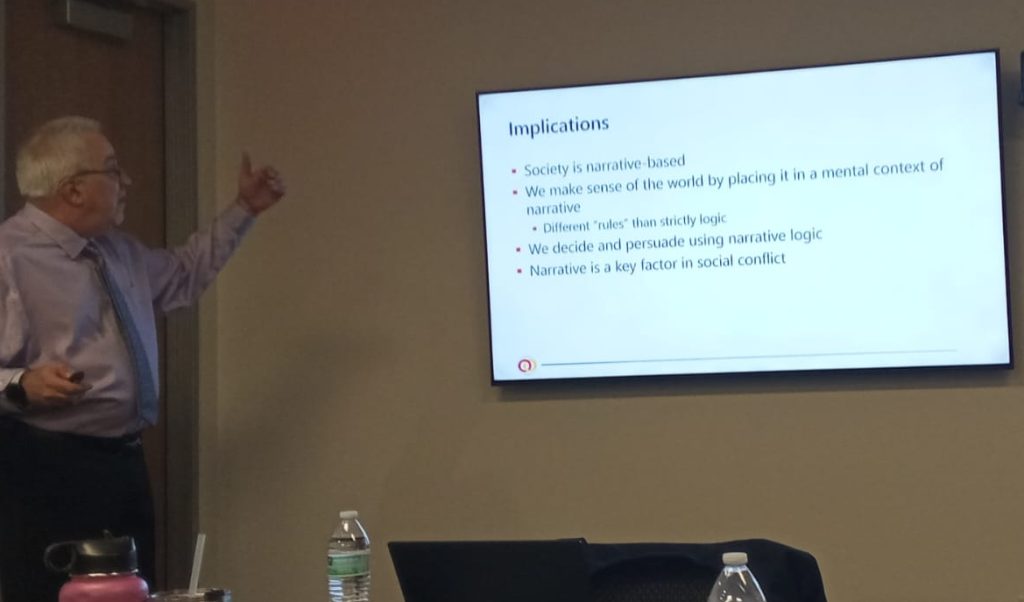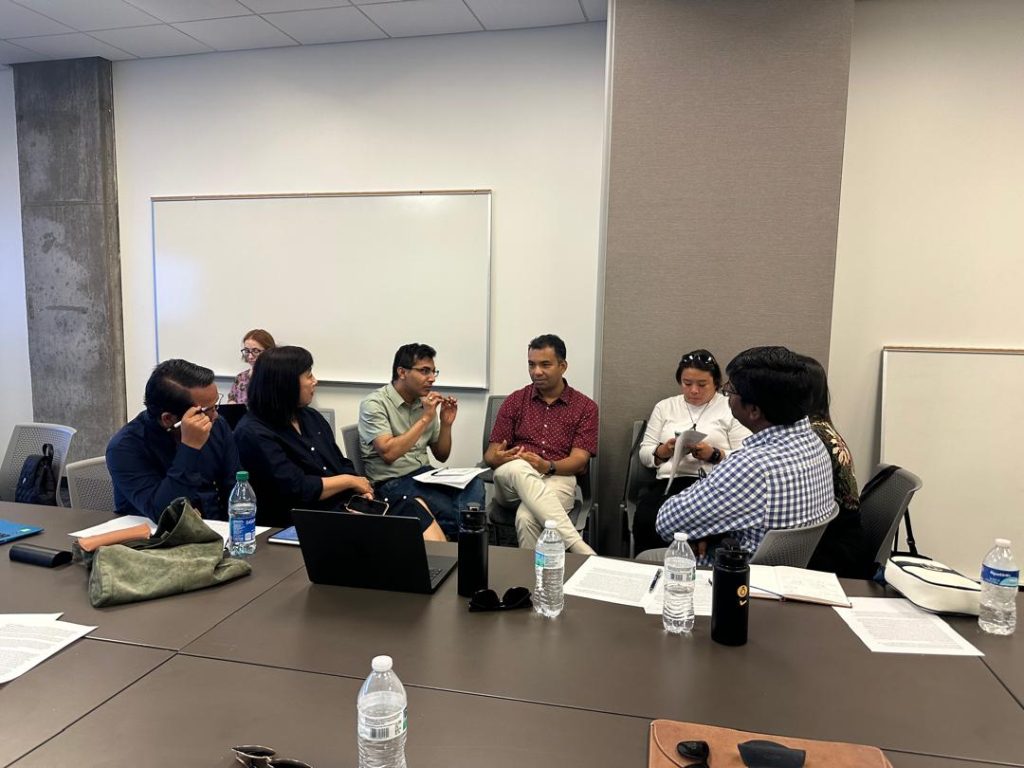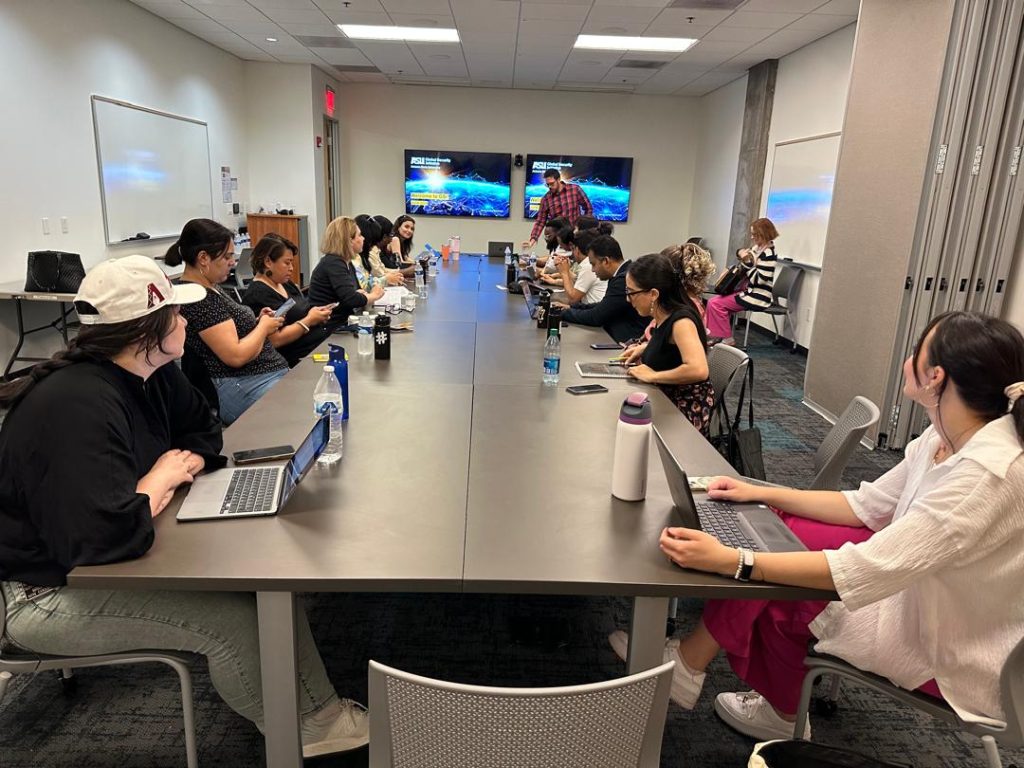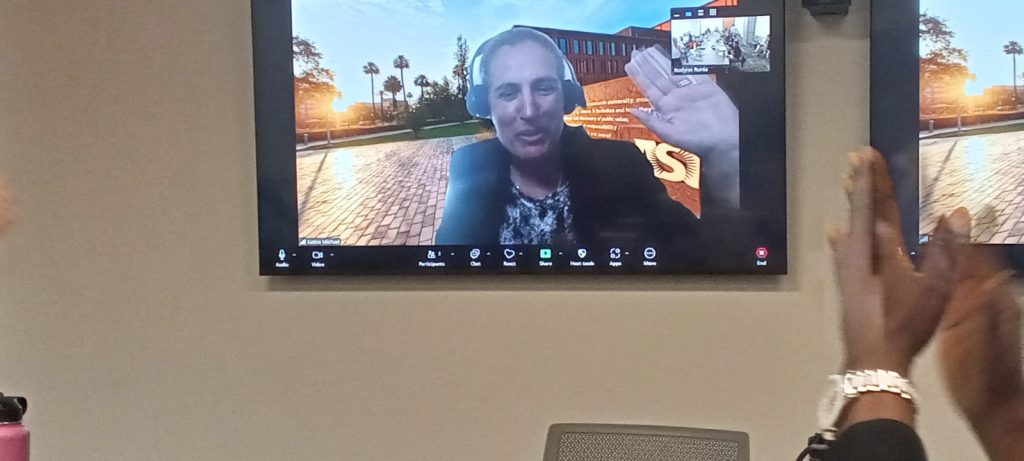On Wednesday, June 26, 2024, I attended several workshops and sessions as part of our SUSI Scholars program that focused on providing insights into narrative & strategic communication, generative AI & the role of journalism. Ultimately, I was left with the realization that we are reshaping communication in the digital age
Narrative & Strategic Communication Practice
The morning session was an enlightening workshop on “Narrative and Strategic Communication” at the Global Security Initiative on ASU’s Tempe campus. Led by Dr. Steven Corman, professor at the Hugh Downs School of Human Communication and founding director of the Center for Strategic Communications, the workshop offered valuable insights and practical skills in effective communication.
Dr. Corman began by emphasizing the critical role of narrative in shaping perceptions and influencing behavior. Through an engaging presentation, we explored various narrative types across different time periods, their strategic use, and the principles of strategic communication.
A highlight of the workshop was the interactive group discussion session. Participants volunteered to join themed groups, each tasked with analyzing a real-world case study in strategic communication. For 40 minutes, we delved into the narrative elements, engaging in collaborative problem-solving and applying the concepts we had learned. This segment fostered diverse perspectives and meaningful dialogues among peers.
The workshop provided a comprehensive understanding of how effective communication, particularly through compelling narratives, can significantly impact various domains, including business, politics, and personal relationships. In today’s digital era, these skills are more crucial than ever, making the workshop’s insights particularly relevant and valuable.


Generative AI : Challenges and promises for journalism
The afternoon’s thought-provoking session was titled “Generative AI & Journalism: Friend or Foe?” and led by Dr. Joshua Garland, interim director and associate research professor. The session explored the rapid advancement of Artificial Intelligence (AI) and its profound impact on the media landscape, with a particular focus on the rise of AI-generated media, commonly known as “Deepfakes.”
Dr. Garland highlighted how generative AI technologies have progressed at an unprecedented pace, making the creation of convincing fake news more accessible and cost-effective. He prompted scholars to discuss the reliability of AI-manipulated media detection, sparking a lively debate on tools like ChatGPT and Perplexity, and their relevance in identifying content risks.
Through the discussion, several key strategies emerged to address these challenges: First, improving detection models by expanding training data and adopting holistic approaches, such as analyzing entire paragraphs or documents. This would enhance the accuracy of AI detectors and increase the diversity of human-created content, making it easier to distinguish from AI-generated media. Second, fostering collaborative efforts across various sectors, including technology, journalism, and human rights, to build robust detection tools. And lastly, integrating AI technologies with human oversight, known as the “human in the loop” approach. This synergy ensures responsible and effective use of AI tools while preserving the integrity of media content. These strategies underscore the importance of a multifaceted approach to supporting the credibility of journalism in the age of advanced AI.

Scholars’ points of views on the “Role of Media“
Finally, during the last session we had the opportunity to discuss the role of media via Zoom with Prof. Katina Michael of ASU’s School for the Future of Innovation in Society. My takeaway from the discussion is that media serves as a primary source of information for most people, delivering news, current events, and educational content. It plays a crucial role in keeping the public informed about local, national, and global issues. Additionally, Prof. Katina Michael highlighted the importance of “Clickbait” to stimulating access to media content. For this session, scholars also had the opportunity to share opinions and experiences drawing on the insights of the discussion, emphasizing the media’s powerful influence on societal perceptions and behaviors.

